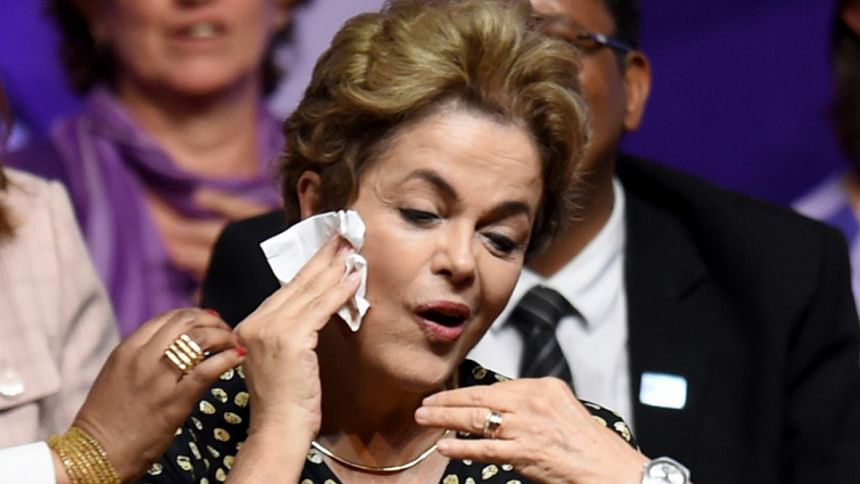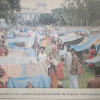Rousseff in last-ditch court appeal to stop impeachment

Brazilian President Dilma Rousseff made a last-ditch appeal to the Supreme Court to halt a vote in the Senate on opening an impeachment trial and suspending her from office.
Rousseff's solicitor general went to the court in the capital Brasilia barely 12 hours before the Senate was due to begin its session.
However, a spokesman for the court told AFP that it was not known when the justice assigned to the case would issue an initial ruling.
The Senate was due to start debating at approximately 9:00 am (1200 GMT) in the futuristic Congress building, with voting not expected to take place possibly until the early hours of Thursday.
Rousseff is accused of breaking budgetary laws. A majority of more than half of the 79 senators able to vote would trigger her automatic suspension for six months and the opening of a trial that could take several months.
Rousseff says she is the victim of a coup mounted by her vice president, Michel Temer, who will take power if she is suspended.
Temer, whose center-right PMDB party broke off its uneasy partnership with leftist Rousseff's Workers' Party, has already prepared a new government and says his priority will be to take action on the moribund Brazilian economy, now in its worst recession for decades.
Rousseff, a one-time Marxist guerrilla who was imprisoned and tortured under Brazil's military rulers in the 1970s, vows to resist.
"I am going to fight with all my strength, using all means available," she told a women's forum in Brasilia on Tuesday in what could have been one of her last official events as president.
Rousseff called her opponents "people (who) can't win the presidency through a popular vote" and claimed they had a "project to dismantle" social gains made by millions of poor during 13 years of Workers' Party rule.
However, Rousseff is deeply unpopular with most Brazilians, who blame her for presiding over the recession and a massive corruption scandal centered on state-oil company Petrobras.
Tensions
In an already chaotic week in which the interim speaker of the lower house tried to order the upper house to halt impeachment proceedings -- only to back down hours later -- there was no patching over the sprawling South American country's deep divisions.
Lawmaker Jose Guimaraes, a Rousseff ally, said that despite almost certain defeat in the initial Senate vote, the impeachment trial itself would be an all-out fight.
"We will have 180 days in the Senate, talking with every one of them, to get them to change their minds," he told journalists, warning that "our main fight today will be in the streets."
Police responded to heightened tension by building a huge metal barricade outside Congress in Brasilia to separate rival groups of protesters during the Senate vote. A separation corridor 80 meters (yards) wide and more than a kilometer (half a mile) long will also be enforced.
A square where major government institutions are located will be declared a "national security zone" and made off-limits to the public, Brasilia security authorities announced.
Huge anti-government protests and smaller but still significant pro-Rousseff rallies have been a regular feature in Brazil over the last year, but so far have passed off mostly peacefully.
Temer lies in wait
As Rousseff prepared for her Senate showdown, the man poised to replace her continued to work on assembling a new government.
Temer is a veteran center-right politician but is also highly unpopular and would inherit the crumbling economy as well as a resentful left.
He has made no public pronouncements in the immediate runup to the Senate vote, but has been negotiating with allies on ministerial posts and measures that Congress would pass to try to breathe some life into the economy.
Stocks in Sao Paulo rose more than four percent as the overwhelmingly anti-Rousseff markets bet that Rousseff was on her way out.
The Senate impeachment trial could last months, running through the Olympics, which open in Rio de Janeiro on August 5 -- a first for South America.
Fears over the Zika virus, high crime in Rio, pollution in the sailing and some swimming venues, along with a budget crunch, are already hurting preparations for the Games, and there are worries that political instability could overshadow the event.

 For all latest news, follow The Daily Star's Google News channel.
For all latest news, follow The Daily Star's Google News channel. 








Comments